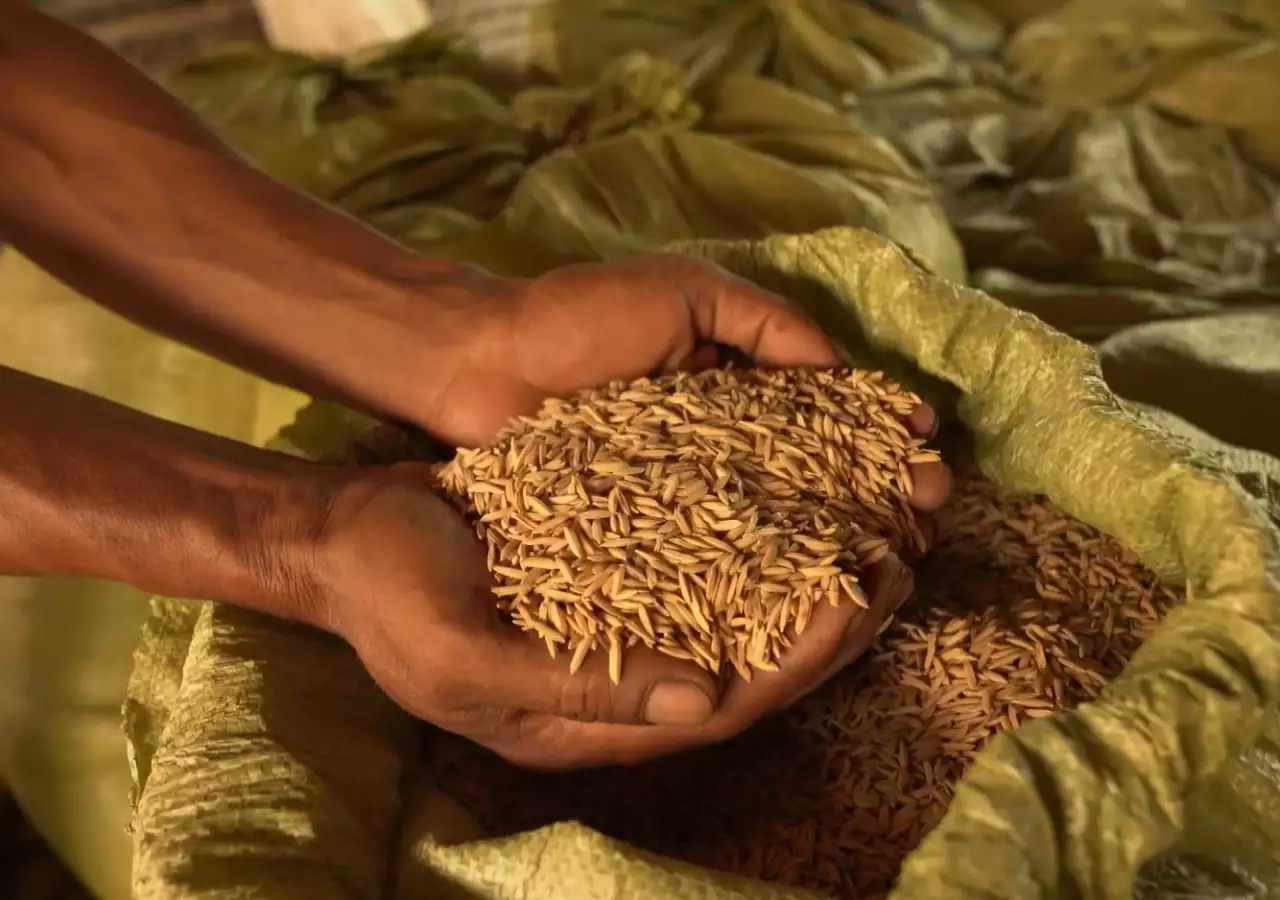Proximity Designs (Enhancing Soil Health)
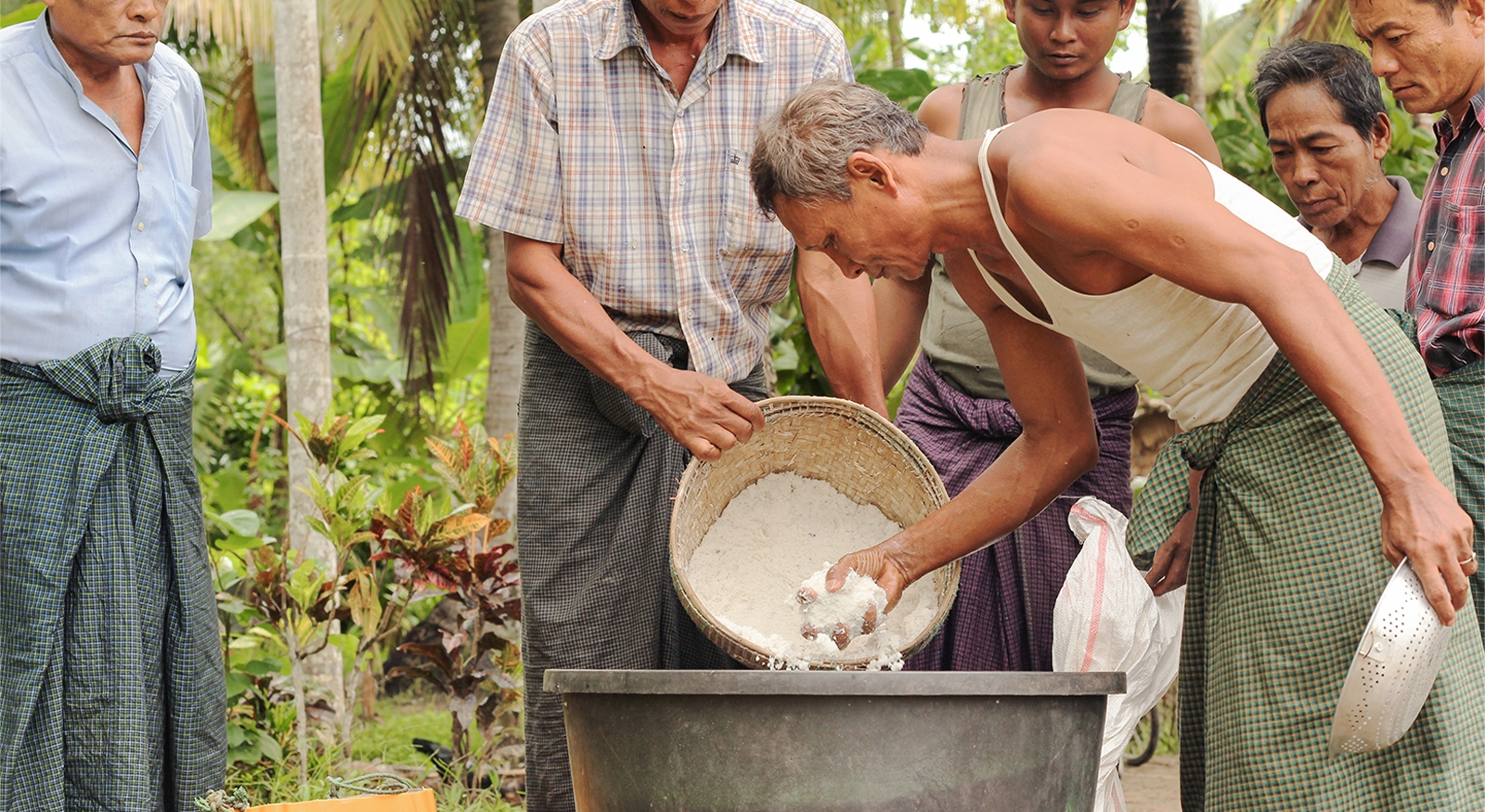
Location
Myanmar
Sector
Agriculture
Type of Investment
Grant
Project Stage
Test & Transition
Length of Investment
2024+
Website
Investment Overview
Proximity's innovation offers a practical and profitable solution for rice farmers in Myanmar to clear their land after harvest, promoting the use of a bio-decomposer as an alternative to traditional open-field burning. This approach improves soil health and achieves higher crop yields while preventing a practice which damages soil quality and harms human health. The innovation also has the potential to achieve higher crop yields and improved soil health within a single season.
The Development Challenge
In common with the 600 million smallholder farmers around the world, Myanmar’s rice farmers are on the global frontline of climate change, with erratic rainfall, droughts and flooding adversely impacting crop yields. High-quality soils are essential to improving resilience against such shocks, by securing food supply and offering pathways to increased income. However, the widespread practice of open-field burning significantly contributes to poor soil quality, whilst also harming human health through air pollution. During the burning seasons in April, May, November and December, Myanmar and neighbouring countries report dangerous levels of air quality.
Globally, rice farmers burn their fields to remove crop residues from the previous harvest, and more than 300,000 Myanmar farmers burn rice stubble on open fields every year. For smallholder farmers, burning is the most common and convenient method, and often the only option to clear land for the next season.
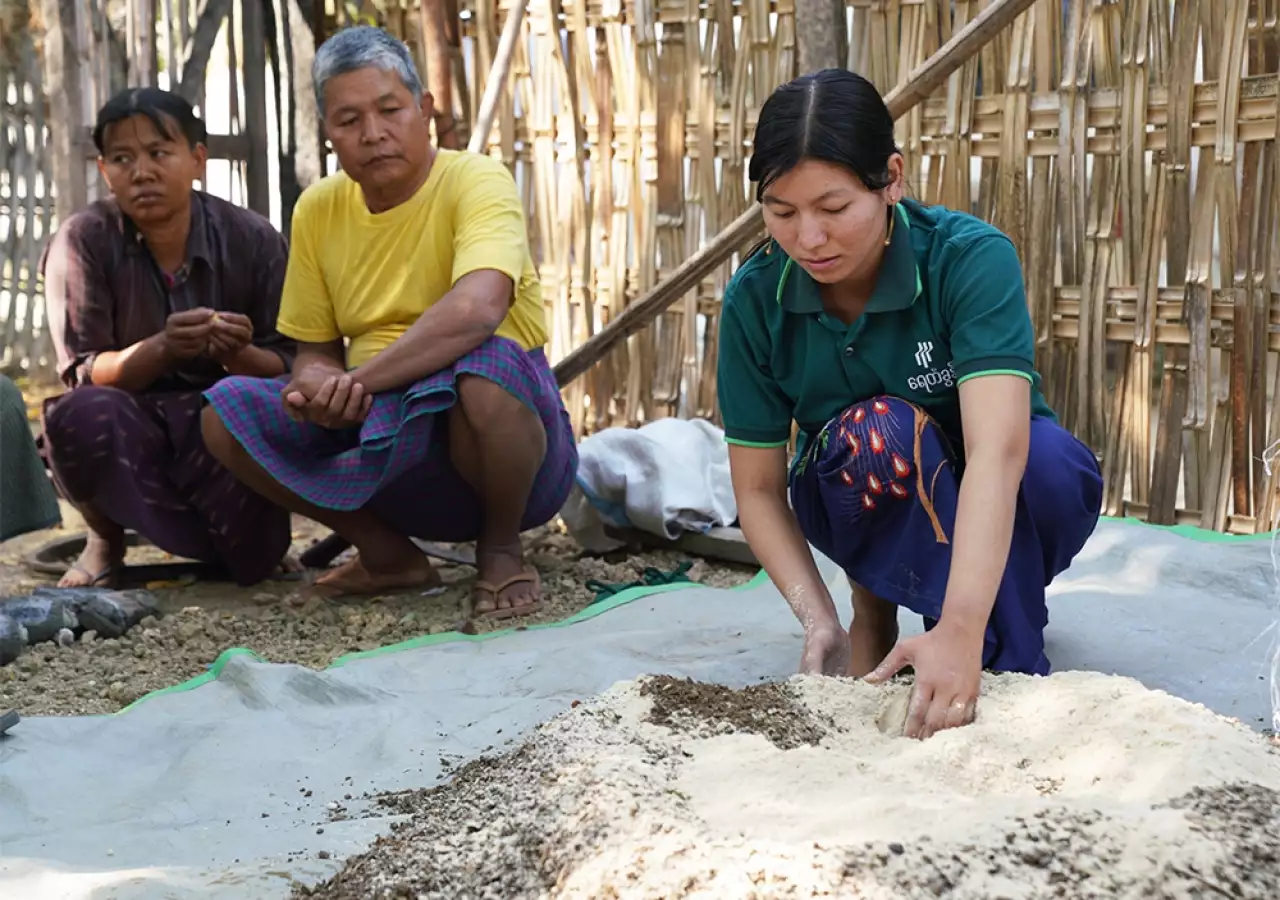
The Innovation
Proximity offers a low-cost and profitable solution called “No-Burn Rice Farming”, which decomposes stubble in fields in a short turnaround time, thereby eliminating the need for open-field burning. The method involves combining two easily accessible materials: a microbial formulation or bio-decomposer, known as Effective Microorganisms (EM), and nitrogen fertiliser, which farmers purchase separately at a total cost of $27 per farm. Farmers then apply this liquid formulation to standing water in their stubble fields and allow the stubble to decompose over a two-week period. This practice promotes the transition to regenerative agriculture by reducing the amount of chemical inputs needed and restoring soil health, which leads to higher yields, less crops lost due to fewer pest and disease occurrences, while improving air quality. During field trials, the need for nitrogen fertiliser input and tilling was reduced by half due to higher soil quality, saving farmers money and time.
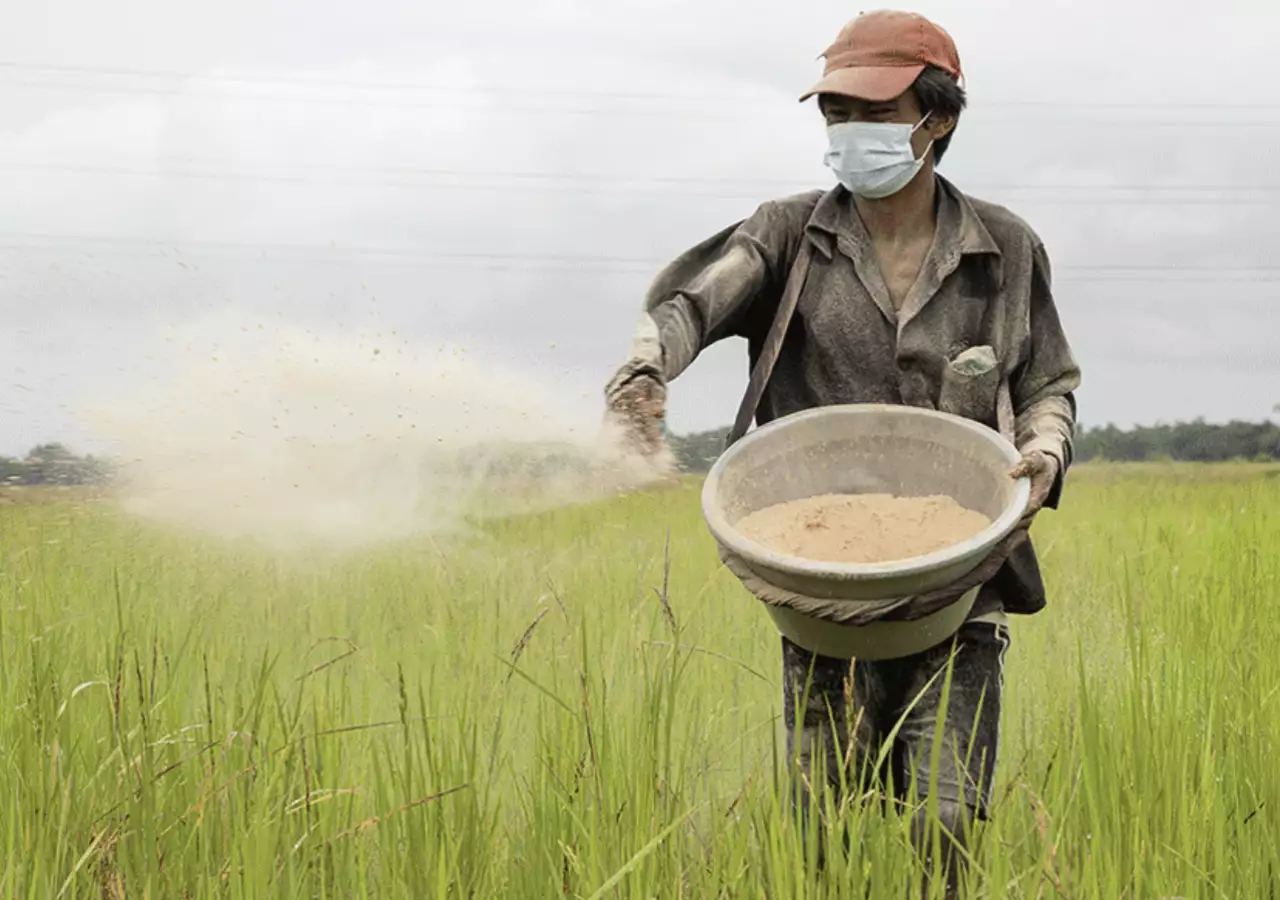
Our Investment
GIF provided a Test and Transition grant of $500,000 in 2024 for a two-year period to support Proximity Designs in delivering the No-Burn practice to 46,000 rice farmers in Myanmar. It will also support a randomised evaluation to generate evidence on the economic impacts of adopting the practice on production cost, yield and farm income, and monitor changes in soil health over time. In the long term, the objective is for Proximity to make the No-Burn innovation available to all rice farmers practising double cropping in Myanmar and generate the evidence needed to inform replication and uptake in other rice-growing countries looking for practical, farmer-friendly solutions.
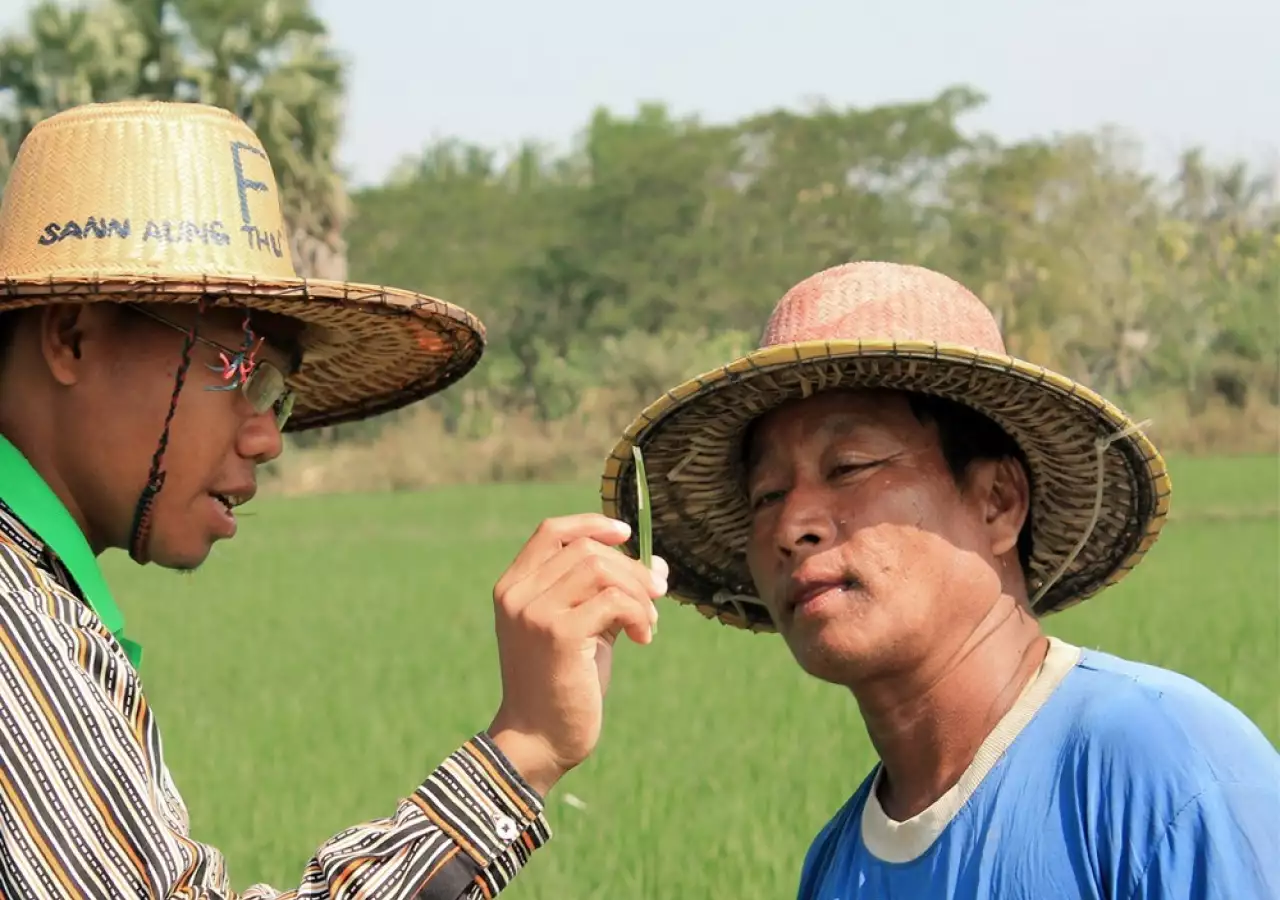
Progress to date
During the initial launch phase between October and December 2023, wherein 14,000 farmers purchased EM, an analysis showed that No-Burn rice farmers experienced an 8% increase in yield and 5% increase in market price leading to an overall increase in net incomes of 21% per acre. Proximity is aiming to get 150,000 rice farmers in Myanmar to switch to the regenerative No-Burn method over the next three years. They are also aiming to improve the soil health of one million acres of farmland, and to prevent more than 2 million tonnes of CO2 from entering the atmosphere.
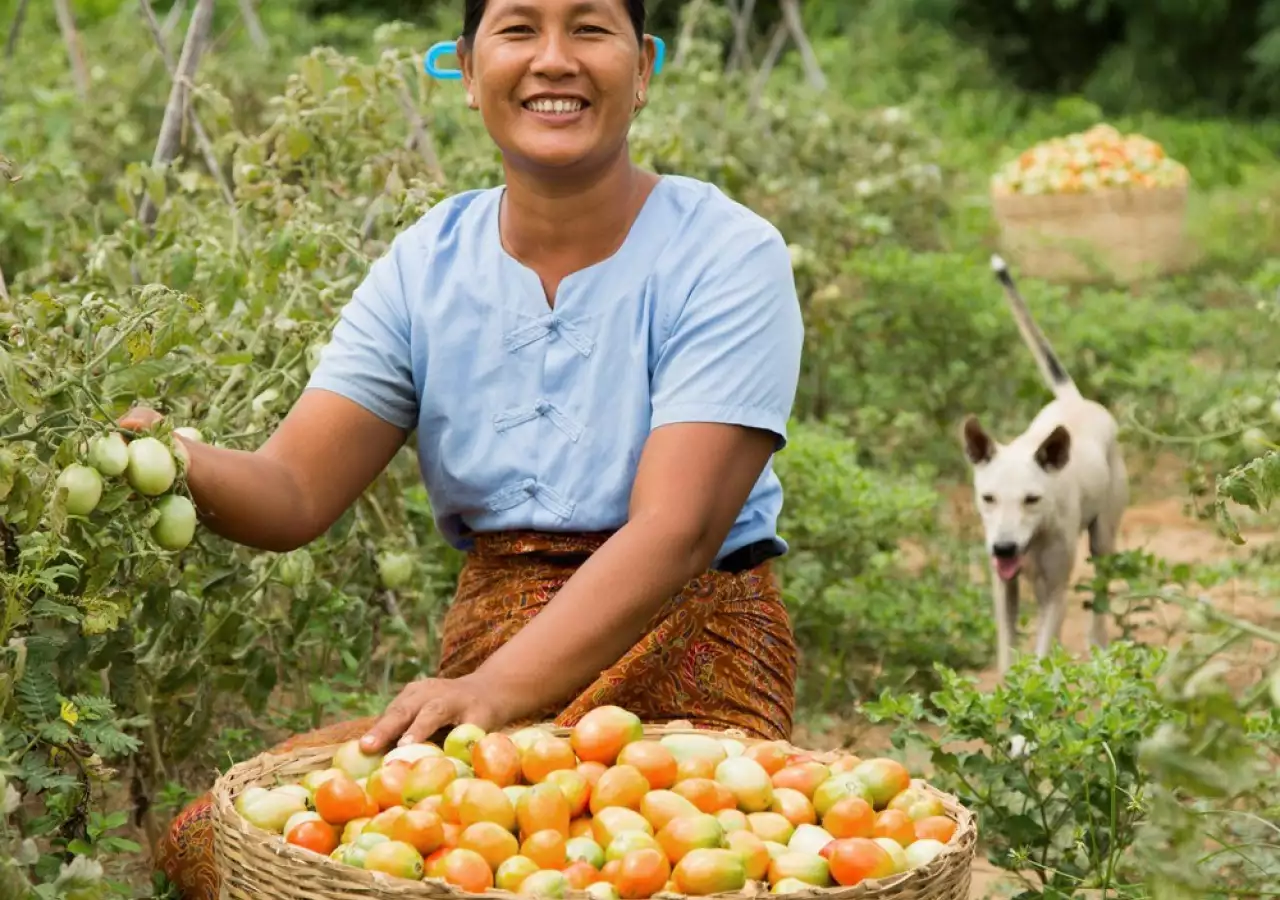
Proximity in numbers
GIF grant
Rice farmers to be targeted over two-year period in Myanmar
Increase in net incomes per acre
Innovating for Climate Resilience
This investment is supported through GIF's Innovating for Climate Resilience Fund.
